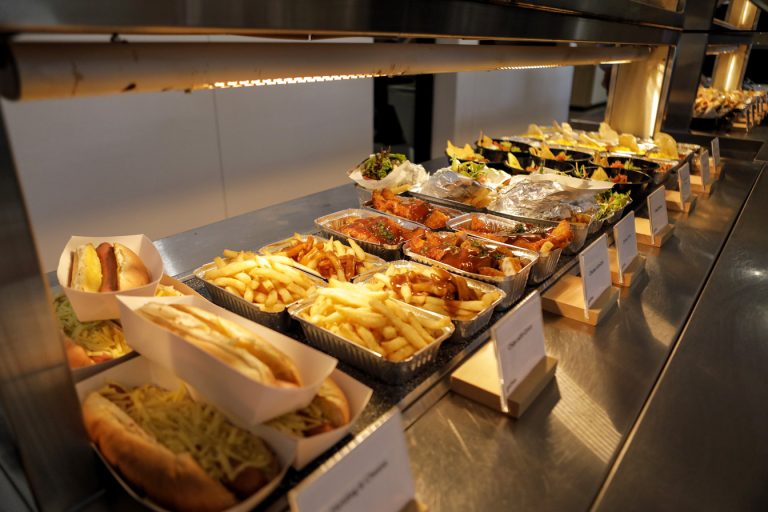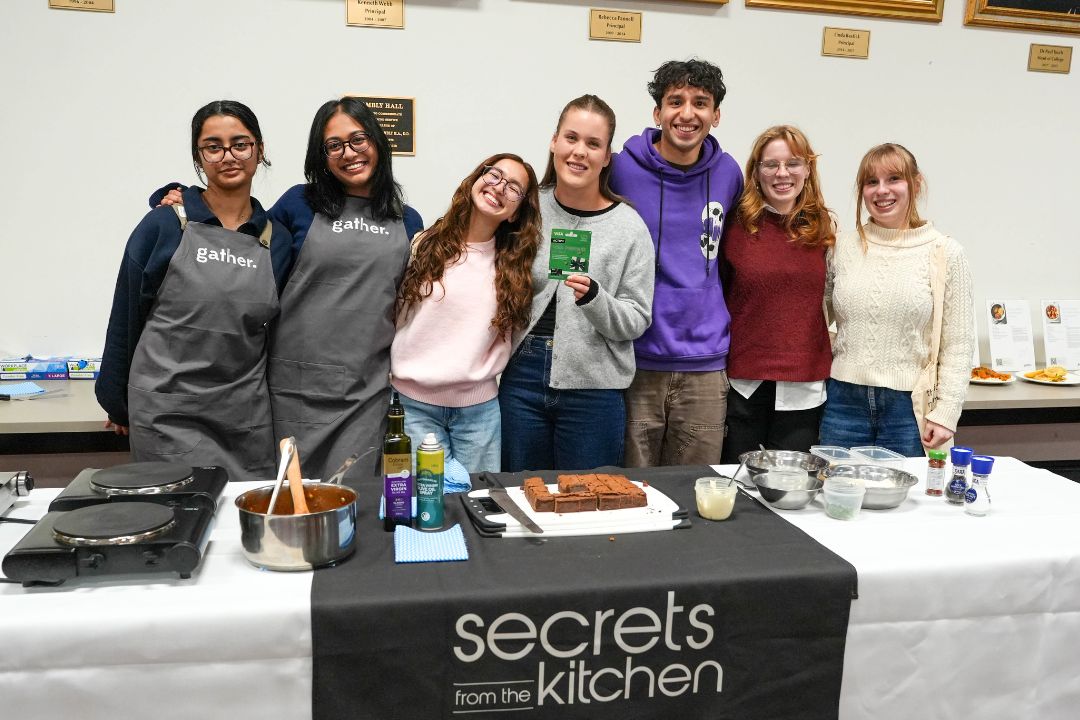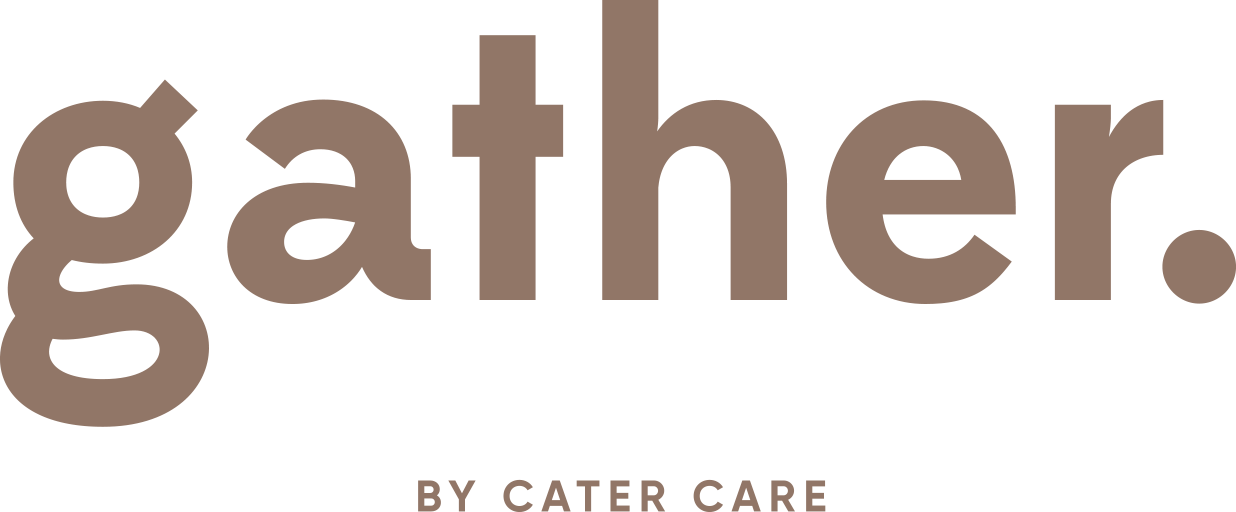In today’s world, we’ve all come to know (and fear) fats as something that we should avoid including in our diets at all costs. In reality, limited amounts of specific fats are an important part of our diet, especially for the developing minds and bodies of the students school catering cares for – but it’s important to recognise the difference between healthy and unhealthy fats.
The good
Healthy fats can be broadly categorised as unsaturated fats, which play an important role in protecting our heart health. Unsaturated fats help decrease the levels of low-density lipoprotein or LDL cholesterol (commonly referred to as the “bad’ cholesterol), while increasing your levels of high-density lipoprotein or HDL cholesterol (the “good” cholesterol). Together, these effects help to lower your risk of coronary artery disease 1.
Luckily, it isn’t hard to find your fix of unsaturated fats:
-
- Monounsaturated fats can be found in olive oil, canola oil, avocados, cashews, and almonds.
-
- Polyunsaturated fats come in both Omega-3 and Omega-6 forms, but both work equally well to protect your heart. Omega-3 fats can be found in oily fish, while Omega-6 fats can be found in sunflower oil, soybean oil, margarine, walnuts, and brazil nuts.
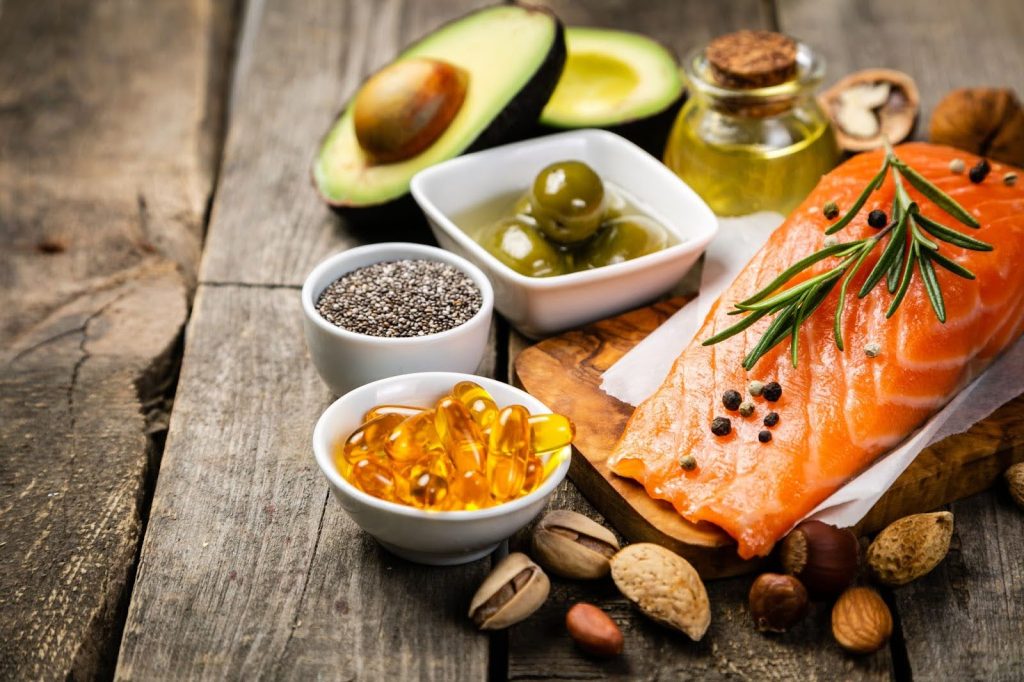
The bad
Unhealthy fats fall into two categories: saturated fats and trans fats. Although they have different chemical structures and are found in different foods, both pose a risk to our health by significantly raising the levels of LDL cholesterol in our bloodstreams while slashing our levels of HDL cholesterol. Many such fats can be regularly found in otherwise healthy foods that will regularly appear on school catering menus, so it’s important to remain aware of your intake.
-
- Saturated fats can be found in fatty cuts of meat and poultry, as well as palm oil, coconut oil, butter, cream, full-fat milk, and many other dairy-rich or deep fried foods.
-
- Trans fats naturally appear in butter, but they’re most often found in processed and manufactured foods as a result of industrial treatment processes. Be aware of discretionary items such as cakes, pies, pizzas, or other “treat”-like foods 2.
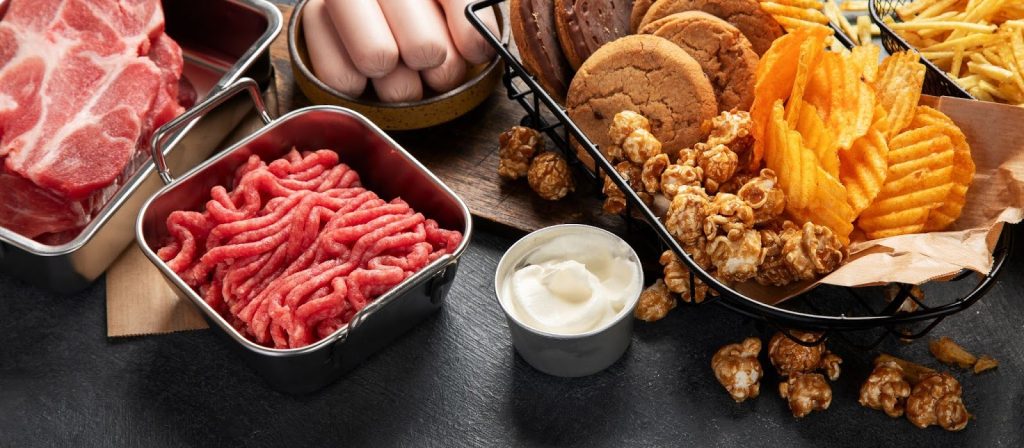
The ugly
While this might seem like an intimidating list to contend with, there’s a few simple steps you can take to help optimise the fat intake in your diet.
-
- As a general approach, it’s better to try and limit your overall intake rather than compensating for unhealthy fats with additional healthy ones.
-
- Try to include 2–3 servings of oily fish per week to easily reach your recommended Omega-3 fat intake. If oily fish isn’t available, other lean seafoods are a great choice too!
-
- Consider changing from full-fat milks to skim or low-fat alternatives.
-
- Lean cuts of meat make great alternatives to fattier cuts – and they’ll often cook better too!
-
- Swap your usual snacks out for nuts, and add them to your stir fries, salads, and mix them into your vegetables 3.
Please note that due to the risk of severe allergies, some schools have a complete ban on nuts entering school grounds. In this case, you might like to try swapping nuts for sunflower seeds, beans, or chickpeas, while those who can eat nuts safely can enjoy them to their heart’s (literal) content at home.
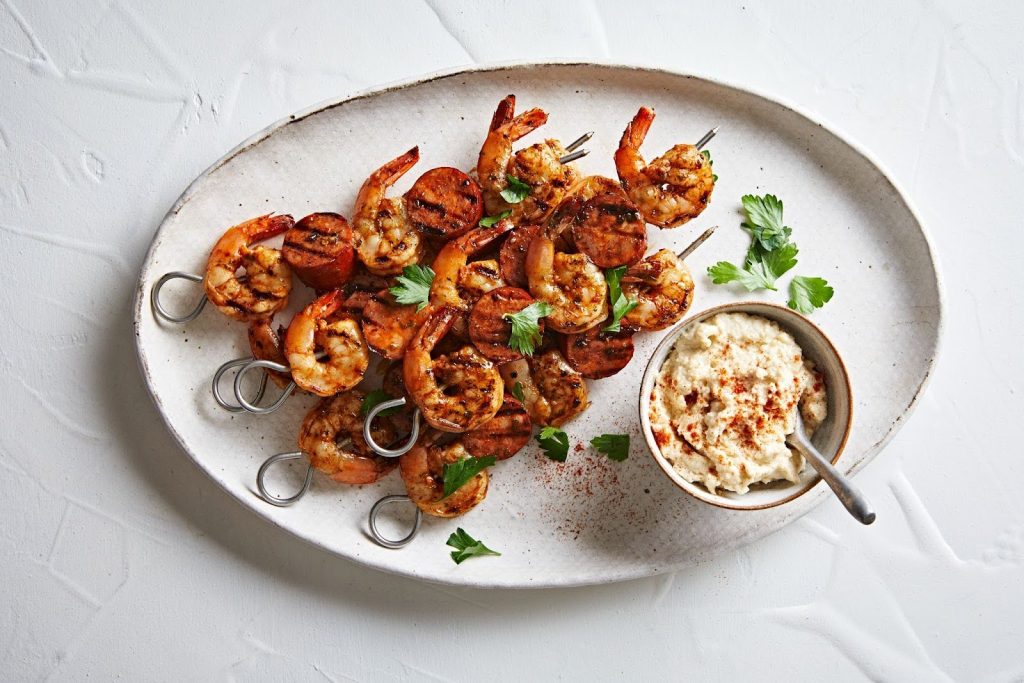
While minimising your intake of excessive fats, it isn’t as important as making sure you’re eating in a healthy and sustainable manner. If you’re getting weary of taking the healthy and responsible options, remember there’s nothing wrong with rewarding yourself with a treat or reward here and there!
Sizzling away
In a world with so many heavily processed dietary options so readily available, it can be difficult to make the right dietary decisions for those yourself as well as those who are depending on you. If you’d rest easier knowing that there’s a team of experienced in-house dietitians poring over your school catering’s meals and menus to make sure your students are getting the fats they need (and not the ones they don’t), then reach out to David O’Brien via the contact details below.

To find out more, get in touch with David O’Brien to have a quick chat about how gather can provide your students and residents with a well-rounded and connecting mealtime experience.
- 0424 190 566
Reference:

